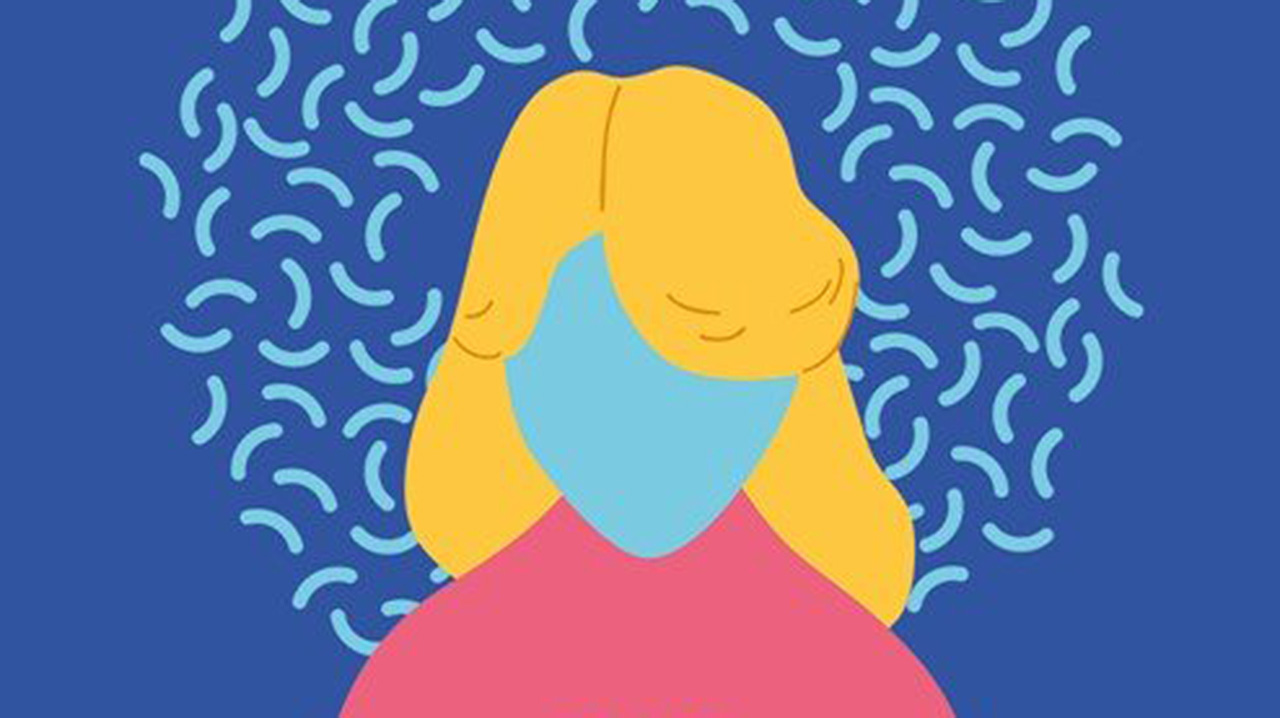Earlier this week, we spoke with The British Tinnitus Association’s Campaign Manager Emily Broomhead to find out more about the condition to mark the start of Tinnitus Week 2021.
Emily spoke about the best ways we can protect our hearing when live shows and festivals make their long-awaited return, cautioning that, “No live event is more important than your hearing.”
Today, Metal Hammer Editor Eleanor Goodman gives us a personal insight into what it’s like to live with the condition and how she manages to protect herself while working as a busy music journalist:
- Our guide to the best earplugs for concerts
- Help Musicians offer support to artists over "rising issue" of hearing loss
- "No live event is more important than your hearing."
“It’s your own fault,” said my GP, when I went to see him at 16, with a ringing in my ears that wouldn’t go away. Two weeks earlier, I’d been to a gig in my school hall, featuring a band from the year above playing rock and metal covers.
“It’s your own fault.” I felt guilty and devastated to learn that I had tinnitus, a permanent condition caused by damage to the hair cells in the cochlea. It’s crazy to think of it today, but I hadn’t realised loud music could cause hearing impairment. The music teacher didn’t believe me and my family good-naturedly tried to lighten the mood with jokes; no-one around me understood what it felt like to lose the sound of silence.
The ringing faded to a high-pitched noise in my left ear, most noticeable when it was quiet at night. I would put on my favourite Placebo CDs, falling asleep to Brian Molko’s soothing whine. I was also obsessed with nu metal and started going to my first gigs, stuffing yellow foam earplugs in and covering them with my long hair so no-one would notice. By the time I went to university, I’d begun to cope with it and focus on what I loved: listening to and writing about metal.
As I became more comfortable living with tinnitus, I realised I wanted to raise awareness and prevent others from making the same mistake as me, so I signed up to become a case study for The Royal National Institute For Deaf People, speaking out on local television and BBC Radio 1Xtra. I also had custom earplugs made by the kindest audiologist in the world, who told me that tinnitus was common, that I hadn’t done anything wrong, and that in Ancient Greece it was thought of as a blessing from the gods to have ‘music’ in your ears. As ridiculous as that sounds, it was a huge comfort for young me to finally be heard.
I built a career in music journalism and had a litany of discreet coping mechanisms: slipping my earplugs in, standing away from speakers, drinking lots of water (it can sound more intense when you’re dehydrated).
Things were going fine until I flew overseas for a press trip and the worst happened. Inside a tiny venue during soundcheck, the engineer blasted out a song that was so loud, I felt my eardrums vibrate and my tinnitus spike even through my earplugs; I went outside but the damage had been done. Even worse, I kept trying to push my earplugs in further in an attempt to protect myself, and ended up getting an infection.
I’m hopeful that research will lead to new ways of tackling it – and maybe even a cure.
Now I could hear my tinnitus all the time: in meetings, over traffic noise, all day, every day. I went into panic mode and felt isolated all over again: would I have to give up my career? Was this what I’d be hearing forever? How could I live with it?
Thankfully, I saw a more sympathetic GP the second time around, who referred me to my local hospital. Their hearing therapy team tested my hearing, taught me to recognise different decibel levels, suggested useful white noise apps and offered cognitive behavioural therapy. I almost cried when the specialist consultant smiled and told me to keep throwing myself into my career – basically, to keep living my life. One of the most useful things I learned from them was not to catastrophise, especially as stress can make tinnitus worse. In time, I learned to cope with it again.
I also learned to be more open about it in my job. For a long time, I worried people would judge me for damaging my hearing, or mistakenly assume that I couldn’t hear the music well enough – I realise now that I was still suffering from the bad experience I had with the doctor early on. Instead, I’ve found people to be understanding, giving me standing tickets for arena shows if the seated ones are close to the speakers, asking me how I am, and coming to me for advice when they’ve had a run-in with tinnitus themselves. At the end of the day, we all love the music – why would we want to lose that?
One in eight people live with tinnitus, and everyone deals with it differently. For me, using earplugs, distancing myself from speakers, drinking water, using apps/music as a distraction and not catastrophising are still useful strategies. I know that it’s worse when I drink alcohol, or when I’m tired, hungry, cold, ill or pre-menstrual, and being aware of those fluctuations helps me stay calm. Other people like to meditate, use wearable devices that mask the tinnitus with white noise, or join a support group.
Ultimately, the best way to protect yourself from tinnitus is by wearing earplugs. For those of us who have it (hello Lars Ulrich, Myles Kennedy, Brian Johnson and all the rest), I’m hopeful that research will lead to new ways of tackling it – and maybe even a cure.
For more information, visit the British Tinnitus Association website or call their hotline on 0800 018 0527.

